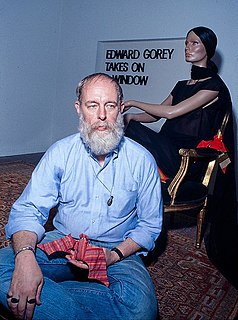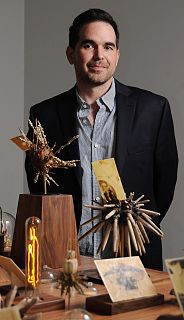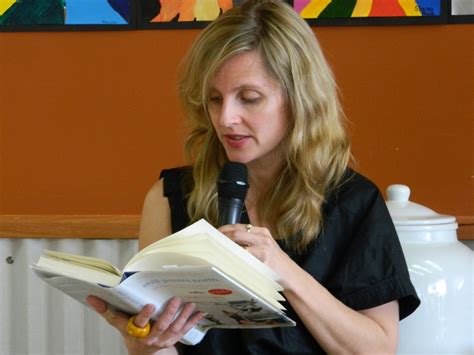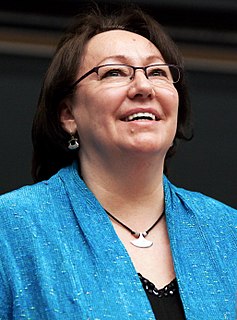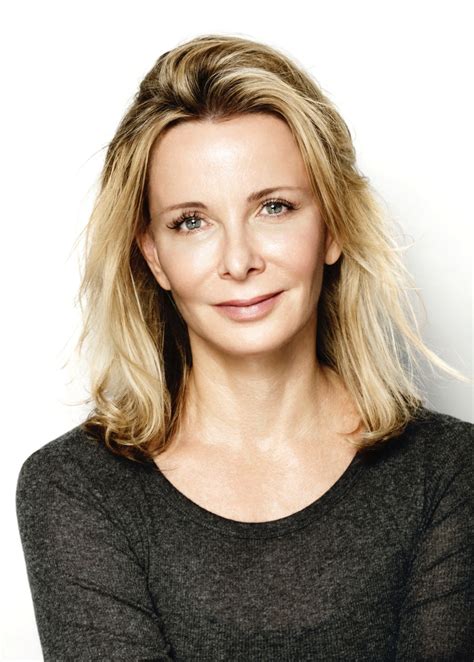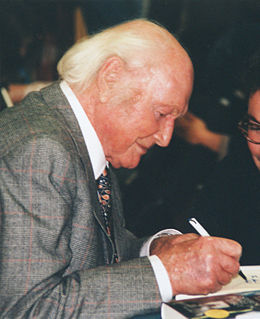Top 82 Glaciers Quotes & Sayings - Page 2
Explore popular Glaciers quotes.
Last updated on April 15, 2025.
I see the regions of snow and ice, I see the sharp-eyed Samoiede and the Finn, I see the seal-seeker in his boat poising his lance, I see the Siberian on his slight-built sledge drawn by dogs, I see the porpoise-hunters, I see the whale-crews of the south Pacific and the north Atlantic, I see the cliffs, glaciers, torrents, valleys of Switzerland - I mark the long winters and the isolation.
Mr Earbrass stands on the terrace at twilight. It is bleak; it is cold; and the virtue has gone out of everything. Words drift through his mind: anguish turnips conjunctions illness defeat string parties no parties urns desuetude disaffection claws loss Trebizond napkins shame stones distance fever Antipodes mush glaciers incoherence labels miasma amputation tides deceit mourning elsewards.
As many glaciers are melting and icy tundras are decaying, there's an unprecedented amount of woolly mammoth material that's becoming dislodged from the ice. Not just mammoth, but all kinds of fossils from the past. What occurred to me was, had anyone tried to pinpoint the first case of human-induced extinction? What was the first time we as species pushed another one to oblivion? I would argue that's probably going to be one of the defining moral problems of the century, human-induced extinction. And I really wanted to know, when did we first cross that barrier?
The Himalayan Glaciers on the Tibetan Plateau have been among the most affected by global warming. The Himalayas...provide more than half of the drinking water for 40% of the world's population...Within the next half-century, that 40% of the world's people may well face a very serious drinking water shortage, unless the world acts boldly and quickly to mitigate global warming.
The mountain glaciers in every region of the world are melting, many of them at an accelerated rate, threatening drinking supplies - drinking water supplies and agricultural water supplies. We have these record storms, drought, floods, fires, three deaths (ph) in the American West, climate refugees beginning now, expected to rise to the hundreds of millions unless we take action.
Our globe is under new dramatic environmental pressure: our globe is warming, our ice caps melting, our glaciers receding, our coral is dying, our soils are eroding, our water tables falling, our fisheries are being depleted, our remaining rainforests shrinking. Something is very, very wrong with our eco-system.
There is no more sagacious animal than the Icelandic horse. He is stopped by neither snow, nor storm, nor impassable roads, nor rocks, glaciers, or anything. He is courageous, sober, and surefooted. He never makes a false step, never shies. If there is a river or fjord to cross (and we shall meet with many) you will see him plunge in at once, just as if he were amphibious, and gain the opposite bank.
The thrill of tramping alone and unafraid through a wilderness of lakes, creeks, alpine meadows, and glaciers is not known to many. A civilization can be built around the machine but it is doubtful that a meaningful life can be produced by it.... When man worships at the feet of avalas creations. When he feels the wind blowing through him on a high peak or sleeps under a closely matted white bark pine in an exposed basin, he is apt to find his relationship to the universe.
I wasn't in a position that some other memoirists are, dealing with families who fed them meth, or kidnapped them, or did something that would make the writer not want to see that family again. I wanted to see my family. I wanted to celebrate them. I was proud of who we were, in the wilderness, floating down rapids or hiking over glaciers, and everywhere else.
It's very clear that global climate change is occurring on earth, but it's also been very clear that that has always happened on earth. We've always had a changing climate on earth. We all know about ice ages. We know when our continent was covered with ice sheets. We know glaciers come and they go. It puzzles me that people forget that.
In Alaska, the beaches are slumping so much, people are having to move houses. In Tuktoyaktuk, the land is starting to go under water. The glaciers are melting and the permafrost is melting. There are new species of birds and fish and insects showing up. The Arctic is a barometer for the health of the world. If you want to know how healthy the world is, come to the Arctic and feel its pulse.
You might not see climate change as an immediate threat to your job, your community, or your families," Kerry said. "But let me tell you, it is." He continued, "climate change is directly related to the potential of greater conflict and greater instability. I'm telling you that there are people in parts of the world - in Africa today, they fight each other over water. They kill each over it. And if glaciers are melting and there's less water available and more people, that is a challenge we have to face.
Beside the grand history of the glaciers and their own, the mountain streams sing the history of every avalanche or earthquake and of snow, all easily recognized by the human ear, and every word evoked by the falling leaf and drinking deer, beside a thousand other facts so small and spoken by the stream in so low a voice the human ear cannot hear them.
People think with climate change what's going to happen is things are just going to get hotter. But that isn't really the whole story at all. One of the things that has happened in the past when the climate has changed a lot is that the glaciers melt, and so the weight on the tectonic crust is different, and that's the definition of an earthquake. If the tectonic plates are springing up or being pressed down, that's when earthquakes and volcanic eruptions happen. So every scientist I spoke to who had studied this thinks that we're in for a wild time.
Everybody was going along thinking that it was a day like any other day, and bang, down went the Twin Towers. Changed everything. So you can't really predict the future, but you can say, "Boy, are those glaciers ever melting." You can measure that, and you can say, "When they're all melted there won't be any Athabasca River," and you can say, "What will happen to the oil sands then?" because you need a lot of water to make that oil. "Where's that going to come from?" You can say things like that.
It was not that long ago a bunch of researchers got on a boat and started chugging for the South Pole to find evidence of the melting glaciers and global warming, and they got stuck in the ice and it took three ice breakers and a helicopter to rescue them. Yet they still carry the day in the pop culture that global warming is happening.
The situation of Leh is a grand one, the great Kailas range, with its glaciers and snowfields, rising just behind it to the north, its passes alone reaching an altitude of nearly 18,000 feet; while to the south, across a gravelly descent and the Indus Valley, rise great red ranges dominated by snow-peaks exceeding 21,000 feet in altitude.
The Universe is one great kindergarten for man. Everything that exists has brought with it its own peculiar lesson. The mountain teaches stability and grandeur; the ocean immensity and change. Forests, lakes, and rivers, clouds and winds, stars and flowers, stupendous glaciers and crystal snowflakes, - every form of animate or inanimate existence, leaves its impress upon the soul of man. Even the bee and ant have brought their little lessons of industry and economy.
Long, blue, spiky-edged shadows crept out across the snow-fields, while a rosy glow, at first scarce discernible, gradually deepened and suffused every mountain-top, flushing the glaciers and the harsh crags above them. This was the alpenglow, to me the most impressive of all the terrestrial manifestations of God. At the touch of this divine light, the mountains seemed to kindle to a rapt, religious consciousness, and stood hushed like devout worshippers waiting to be blessed.
The country through which we had been travelling for days has an original beauty. Wide plains were diversified by stretches of hilly country with low passes. We often had to wade through swift running ice-cold brooks. It has long since we had seen a glacier, but as we were approaching the tasam at Barka, a chain of glaciers gleaming in the sunshine came into view. The landscape was dominated by the 25,000-foot peak of Gurla Mandhata; less striking, but far more famous, was the sacred Mount Kailash, 3,000 feet lower, which stands in majestic isolation apart from the Himalayan range.
The earth has continued to change, from rapid climatic changes that have caused the glaciers and the ice sheets to basically bulldoze the landscape and cause species compression in the tropics and cause mass species extinction - you know, all these huge changes. In terms of evolution, every species is doomed to eventual extinction. The natural world is constantly changing. So, to deal with "environmental problems," in quotes, totally misses the issue. That is not the way we want to define our problem if we're going to find our solution.
Working in the Arctic is definitely colder, but not necessarily harder. There were different challenges. And in many ways, Chasing Coral was even more of a struggle for me personally. And more of a struggle to capture. Glaciers right now are changing very consistently. The interesting thing that we realized with Chasing Coral was that the corals reefs. They can go from living to dead in two months. And if you're not there at the right time to capture that before and after, you just show up and it's a dead reef. So it was a challenge to be at the right place at the right time.

